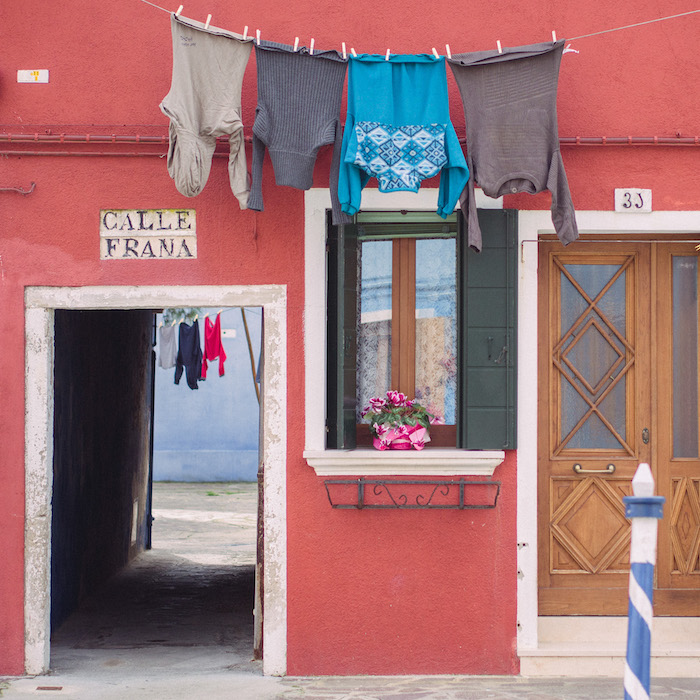Do you love life, even when it gets you down? Then it’s time to learn one of the most essential verbs in Italian, vivere (to live)!
vivere
to live

Here is how it is conjugated in the present tense:
io vivo = I live
tu vivi = you live (informal)
lui vive = he lives
lei vive = she lives
Lei vive = you live (formal)
noi viviamo = we live
voi vivete = you live (plural)
loro vivono = they live
Vivere is an irregular second-conjugation verb ending in -ERE.
When used intransitively, vivere may take either essere or avere as its auxiliary, with the latter being preferred in modern Italian. When used transitively, on the other hand, vivere always requires the auxiliary verb avere. For example:
I miei genitori sono vissuti a Firenze per tanti anni.
I miei genitori hanno vissuto a Firenze per tanti anni.
My parents lived in Florence for many years.
Ho vissuto una vita felice.Sono vissuto una vita felice.
I’ve lived a happy life.
In general, the Italian word vivere aligns with its English equivalent, to live, but there are a few exceptions. Let’s explore the different nuances this verb encompasses:
To be alive
The first definition of vivere is, simply, to be alive. In other words, it is the opposite of morire (to die).
Chi vuole vivere per sempre?
Who wants to live forever?

To exist in / for a certain time
Vivere is frequently employed to depict the duration spent in a particular place or the length of a person’s life.
Ho vissuto in Germania per tanti anni.
I lived in Germany for many years.
Gandhi ha vissuto per 78 anni.
Gandhi lived for 78 years.

To exist in a certain place or habitat
Vivere is also used to describe one’s continued existence or presence in a place, such as a country or a house. The verb abitare (to reside / dwell / occupy) can be used as a synonym in this case.
Vivo in questa casa da 30 anni.
I’ve lived in this house for 30 years.

To exist in a certain way
Finally, we can use vivere to characterise an individual’s lifestyle. At opposite ends of the spectrum, there’s vivere bene (to live well) and vivere male (to live poorly), along with a whole plethora of expressions in between such as vivere da solo (to live on one’s own), vivere in solitudine (to live in solitude), and vivere da sultano (to live like a king).
E vissero felici e contenti.
And they all lived happily ever after.

To experience / go through something
In this case, vivere takes a bit of a detour from its English counterpart. For instance, to convey that someone had a challenging experience, you can say in Italian that they “lived” through a tough situation (vivere una brutta esperienza). Similarly, you can “live” joyful moments in Italian (vivere momenti felici).
Ha vissuto dei momenti molto belli durante il suo anno all’estero.
He experienced wonderful moments during his year abroad.

Important note: While vivere is commonly taught as a verb, especially to beginners, it can also function as a noun with the meaning of “way of life” or “living.” For instance, il vivere in Italia would translate to “the way of life in Italy.“
Using ‘Vivere’ with Prepositions
It isn’t uncommon to see vivere paired with the prepositions di, per and da.
When di is used, vivere means “to live on / by” something.
- Vive di pane e pasta. = He lives on bread and pasta.
- Vive di rendita. = He lives on a private income.
- Devo vivere di espedienti. = I have to live by my wits.
When per is used, vivere means “to live for” something or someone.
- Vivono per i loro figli. = They live for their children.
When da is used, vivere means “to live like” something or someone.
- Vive da gran signore. = He lives like a lord.
Idioms featuring ‘vivere’
As you can imagine, there are numerous idiomatic expressions that incorporate the verb vivere, so we’ll focus on some of the most well-known and interesting.
Guadagnarsi da vivere
Literal translation: to earn to live
English meaning: to make a living
Vivere alle spalle di qualcuno
Literal translation: to live on someone’s shoulders
English meaning: to sponge off someone
Vivere nella bambagia
Literal translation: to live in cottonwool
English meaning: to live a sheltered life
Chi vivrà vedrà
Literal translation: he who lives will see
English meaning: time will tell
Vivi e lascia vivere
Literal translation: live and let live
English meaning: live and let live
Vivere alla macchia
Literal translation: to live in the Maquis shrubland
English meaning: to live/go into hiding
Note: Macchia in this case refers to the Mediterranean scrubland, a favoured location for bandits to hide. It does not mean macchia as in stain.
Heather Broster is a graduate with honours in linguistics from the University of Western Ontario. She is an aspiring polyglot, proficient in English and Italian, as well as Japanese, Welsh, and French to varying degrees of fluency. Originally from Toronto, Heather has resided in various countries, notably Italy for a period of six years. Her primary focus lies in the fields of language acquisition, education, and bilingual instruction.


